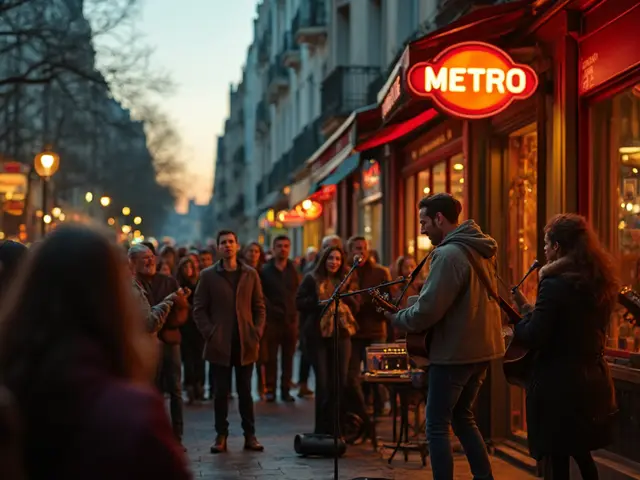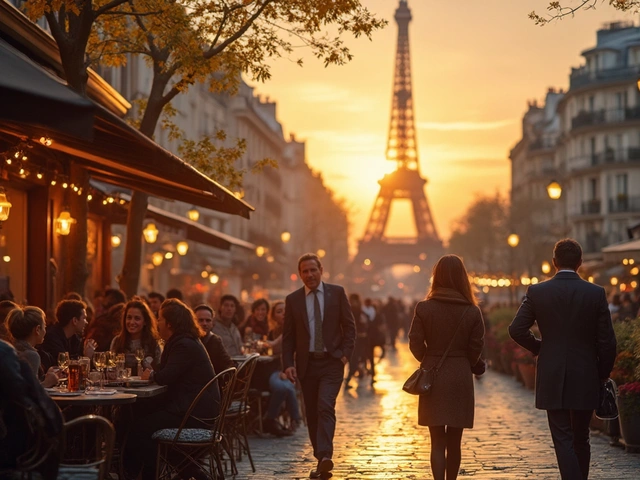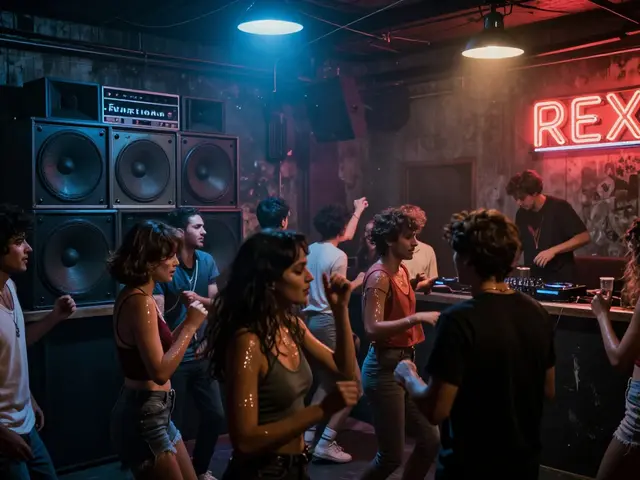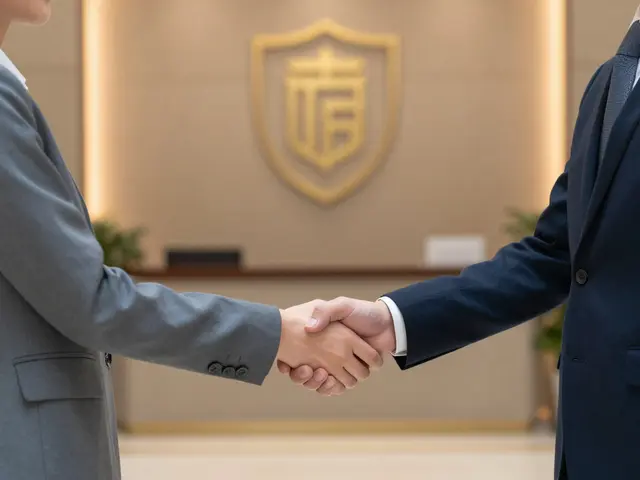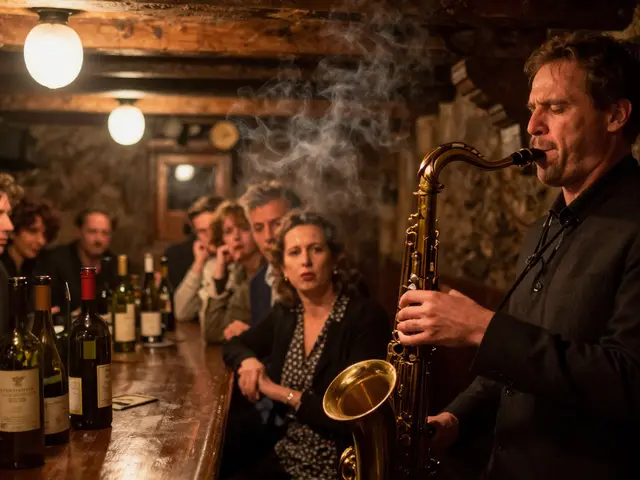
Real elite encounters don’t happen in limos or private jets. They happen in quiet corners of a Parisian bookstore at 5 p.m., over a single glass of aged whiskey in a Tokyo backroom, or during a 20-minute walk through Dublin’s Phoenix Park when the leaves are just starting to turn. These aren’t events you schedule. They’re moments you recognize - and then carefully, deliberately, create.
What Makes a Meeting Elite?
An elite encounter isn’t about who you know. It’s about how you show up. It’s the difference between a business lunch where everyone checks their phones under the table and a conversation that lasts three hours because neither person wanted it to end. The key isn’t wealth, title, or access. It’s presence.
Most people think elite meetings require exclusivity - members-only clubs, invitation-only dinners, luxury resorts. But exclusivity without authenticity is just isolation. True elite encounters thrive on mutual curiosity, not status symbols. You don’t need a private island. You need a question worth asking and the patience to listen to the answer.
Think of it this way: if you’ve ever sat across from someone and felt time slow down - not because they were famous, but because they were fully there - that’s an elite encounter. It’s rare. It’s quiet. And it’s completely repeatable if you know how to set the stage.
Where Elite Encounters Actually Happen
You won’t find them on LinkedIn. You won’t find them at networking mixers with name tags and free champagne. The most meaningful elite meetings happen in places where people go to be alone - and end up finding each other.
- Independent art galleries with small openings on weekday afternoons - no crowds, no photographers, just people who care about the work.
- Specialty bookshops that host author readings for under 20 people - the kind where the owner remembers your name and the last book you bought.
- Private cooking classes taught by chefs who’ve left Michelin kitchens to teach in their homes - focused on technique, not status.
- Early morning museum tours before the public arrives - when the light hits the sculptures just right and silence feels like a shared language.
- Local orchards or vineyards that offer tastings by appointment only - where the owner pours you a glass and tells you why the 2018 vintage failed, not why it’s perfect.
These aren’t venues. They’re filters. They naturally screen out the performative and invite the genuine. The people who show up there aren’t trying to impress. They’re trying to understand.
How to Start Without Being Pushy
You can’t force an elite encounter. But you can create the conditions for one. The mistake most people make is approaching with an agenda: “I need to meet someone influential.” That energy repels. What draws people in is curiosity - not ambition.
Here’s how to begin:
- Go somewhere quiet, not crowded. Choose a place where conversation is possible - not just possible, but expected. A rooftop bar with loud music? No. A café with no Wi-Fi and a shelf of poetry? Yes.
- Bring something small, but meaningful. A first edition you found at a flea market. A bottle of single-origin honey from a friend’s farm. Something that sparks a story, not a sale.
- Ask one open question. Not “What do you do?” - that’s the death of real connection. Try: “What’s something you’ve changed your mind about recently?” Or: “What’s a place you’ve visited that still lives in you?”
- Listen like you’re learning something you’ll need tomorrow. Not nodding. Not waiting for your turn. Listening until you feel the other person’s rhythm - the pauses, the hesitations, the sudden bursts of energy.
- Leave without asking for anything. No LinkedIn requests. No follow-up emails. Just a simple, “Thank you for the time. I’ll think about what you said.” Then disappear - until the next time you see them, and you both know it’s not by accident.
This isn’t networking. It’s resonance.
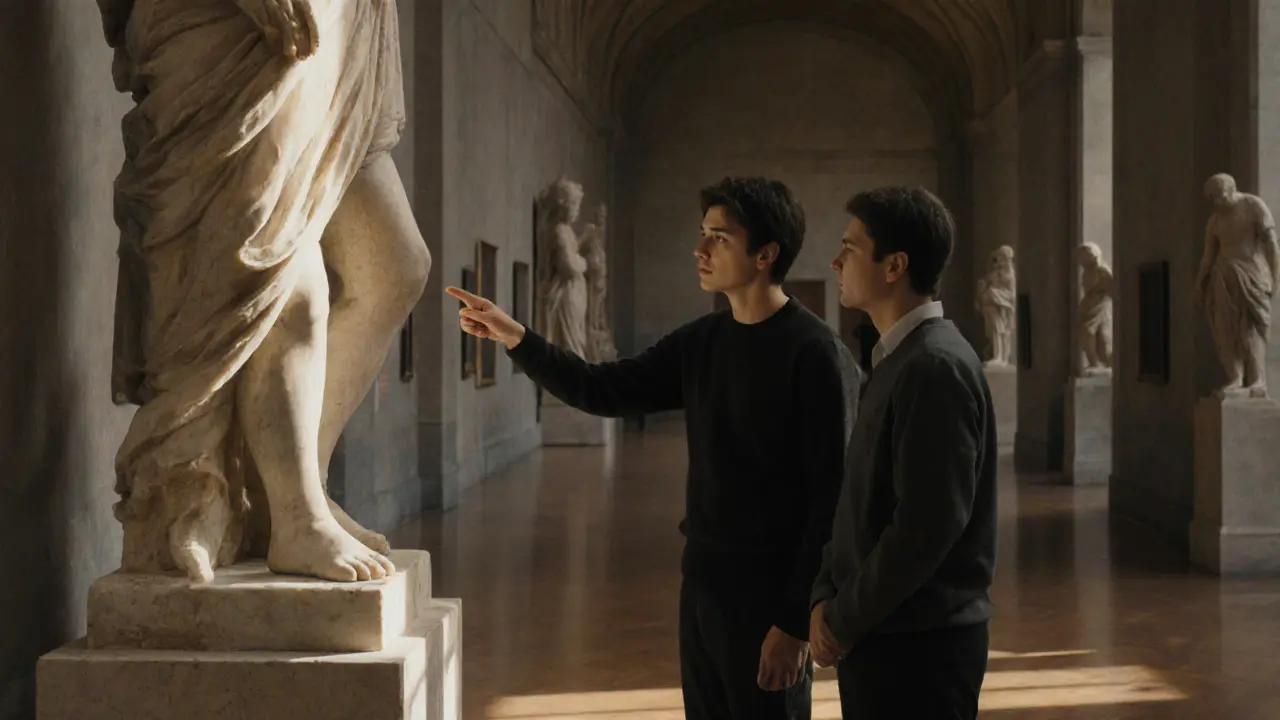
Why Refinement Matters More Than Access
There’s a myth that elite encounters are about who lets you in. The truth? They’re about how you carry yourself once you’re inside.
I’ve sat across from CEOs, artists, and ex-diplomats in places where no one knew who they were - and they were more real than they ever were in boardrooms. Why? Because refinement isn’t about wearing a tailored suit. It’s about knowing when to speak, when to stay silent, and when to let someone else’s story breathe.
Refinement shows up in small things:
- Not interrupting, even when you have the perfect rebuttal.
- Not name-dropping, even when you’ve met someone famous.
- Not checking your watch, even when you’re late for your next meeting.
- Not trying to solve their problem - just being there while they figure it out themselves.
These aren’t manners. They’re signals. They say: I’m not here to take. I’m here to understand.
The Hidden Rule of Elite Encounters
There’s one unspoken rule that separates real elite meetings from everything else: You don’t talk about them.
People who host or attend these gatherings rarely post about them. They don’t tag locations. They don’t mention names. Why? Because the value isn’t in the connection - it’s in the transformation. And transformation is private.
If you find yourself wanting to share the details - who you met, what they said, how impressive it was - you’re not yet ready for the next one. True elite encounters change you quietly. They shift your perspective. They leave you with a new question, not a new contact.
That’s why the most powerful encounters often happen with strangers - people you’ll never see again. Because there’s no pressure to perform. No future favor to call in. Just pure, unfiltered exchange.

How to Build a Life That Attracts These Moments
You can’t fake an elite encounter. But you can build a life where they naturally occur.
Start by asking yourself: Where do I go when I’m not trying to be seen?
If your answer is “nowhere,” then start small:
- Replace one weekly social media scroll with a visit to a local library’s rare books section.
- Sign up for a single class - pottery, Latin, fermentation - where no one knows your job title.
- Walk through your city without headphones. Notice the same person at the same café every Tuesday. Smile. Don’t speak. Wait.
- Read one book a month that has nothing to do with your industry. Then, write a short note to the author - not to flatter, but to ask one honest question.
These aren’t networking tactics. They’re soul calibration. The more you align your life with quiet depth, the more you’ll attract people who do the same.
Elite encounters aren’t found. They’re cultivated - through patience, through silence, through the courage to be ordinary in a world that rewards noise.
What Happens After the Encounter?
The real test isn’t the meeting. It’s what happens after.
Some people try to turn elite encounters into relationships. They send messages. They invite to dinner. They ask for introductions. That’s not refinement. That’s transaction.
True elite encounters leave no paper trail. But they leave a mark.
You might find yourself:
- Reading a book you never would have picked up - because someone mentioned it in passing.
- Changing your mind about a long-held belief - not because you were convinced, but because you finally heard a different truth.
- Choosing to say less in your next meeting - not because you’re being careful, but because you’ve learned the weight of silence.
That’s the legacy of an elite encounter. It doesn’t add to your Rolodex. It adds to your depth.
Can elite encounters happen online?
Rarely, and never authentically. Online spaces reward speed, performance, and visibility - the exact opposite of what elite encounters require. You might find interesting people online, but the depth, the silence, the unspoken trust - those need physical presence, shared space, and time without distraction. A Zoom call with a brilliant thinker isn’t an elite encounter. A 45-minute walk with them in the rain, talking about childhood memories - that is.
Do I need money to have elite encounters?
No. Elite encounters are not about cost - they’re about attention. A $200 dinner doesn’t guarantee depth. A $5 cup of coffee at a quiet café with a stranger who asks you a question that changes your perspective? That’s priceless. The most meaningful encounters I’ve had cost nothing but time and presence.
How do I find these places in my city?
Stop searching for “elite” venues. Start asking local librarians, bookstore owners, art gallery curators, or independent chefs: “Where do you go when you want to be alone?” They’ll point you to hidden corners - a reading circle in the basement of a church, a weekly tea ceremony at a retired professor’s home, a weekly piano night in a library that doesn’t advertise it. These places don’t want crowds. They want the right people.
What if I’m shy or introverted?
You’re already ahead. Elite encounters aren’t for the loud. They’re for the quiet. You don’t need to be the most talkative person in the room. You just need to be the one who listens deeply. Most people are exhausted from being performed for. Your silence is your strength. Show up. Be still. Ask one thoughtful question. That’s enough.
How often should I aim to have these encounters?
Once a month is enough. Trying to force more turns it into a project, not a practice. The goal isn’t quantity - it’s quality. One real encounter can reshape your thinking for months. Focus on depth, not frequency. Let the next one find you when you’re ready - not when you’re scheduled.



